Image
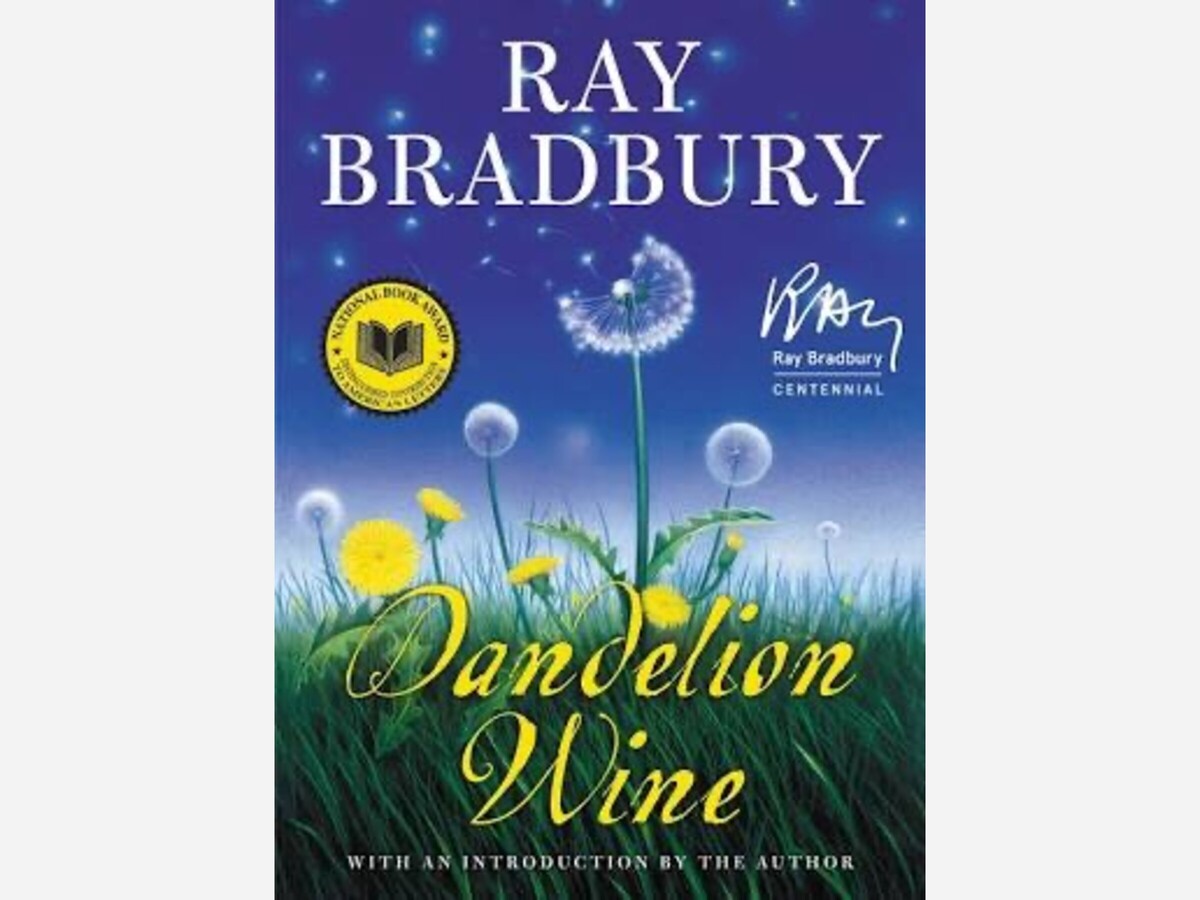
In 2020, when the pandemic lockdown dragged on long and lonely, I turned to several familiar tasks in search of comfort. Most helpful among them was writing. Second to that was reading (for probably the 20th time) Ray Bradbury’s Dandelion Wine.
I was first introduced to this book in Lesley Misko’s class in high school and in 1995 I used it as the basis of my senior project, a study of how the main character, Douglas Spaulding, experiences the stages of grief as he learns in one fateful summer that he is alive and, as such, he (and everyone he loves) will die. I am not sure why the story resonated with me so deeply, though I had certainly experienced several losses by that time. No matter the reason, the novel has remained significant to me all these years.
In September 2005, two weeks after my grandfather died, I again turned to Dandelion Wine. When I finished the book, I felt moved to write to Mr. Bradbury, quoting my favorite passage and sharing how his story had moved me. To my surprise and delight, he wrote back a few months later, thanking me for my “special and wonderful letter” and telling me about his then forthcoming sequel to the book: Farewell Summer. I eagerly bought my copy and found it enjoyable, but not as magical as Dandelion Wine, which I continue to read almost every summer.
The summer of 2020 was no exception, but that year I was eager to connect with others; months of living alone and social distancing led to feeling isolated. So, I was intrigued when a friend from high school shared a form of poetry she had learned. “Blackout Poetry,” as it is called, begins with an existing text and ends in a newly created work through the erasure (or blacking out with ink or marker) of chosen words. In this way, the poet finds and creates new meaning from the original work. I loved this idea! And since I had a spare copy of Dandelion Wine, I began to create blackout poetry from pages of the book. In doing so, I felt connected to a long lost friend, as if Mr. Bradbury (who died in 2012) and I were co-creating something new.
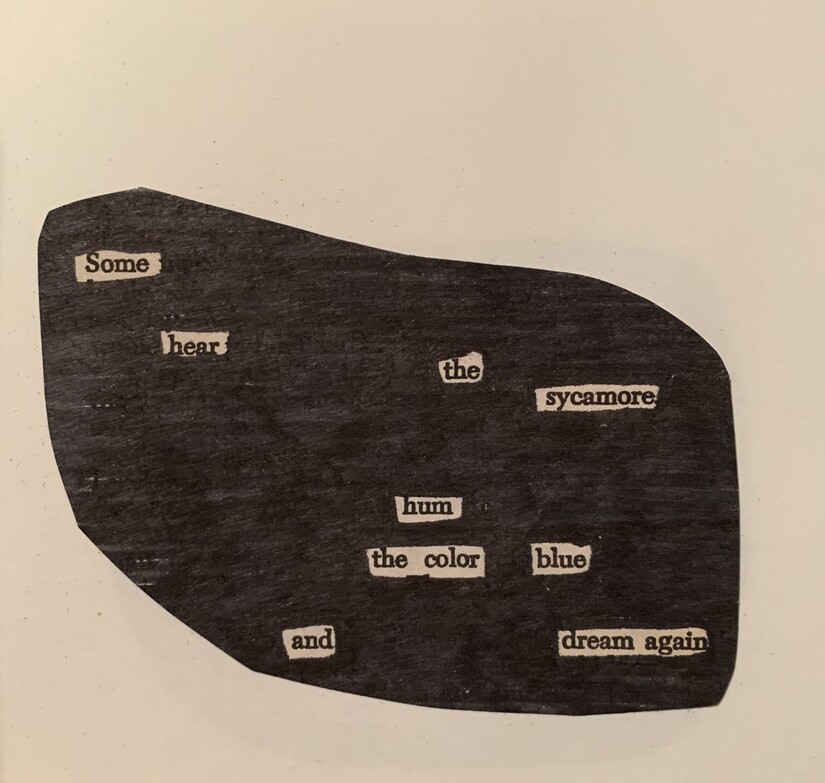
“Some hear the sycamore hum the color blue and dream again.”
Over time, I developed a method. I would begin by closing my eyes and holding the closed book in my hands, just breathing and centering myself. Then, with eyes still closed, I would flip open to a page and rest my hand on it. That would be the page from which my new poem would arise. Then I would open my eyes and relax my gaze and just notice what words and phrases stood out to me. Invariably, a new sentence or set of words would “come to life” and I would circle each word I wanted to use. Then I would black out everything else until my new creation was the only thing visible.
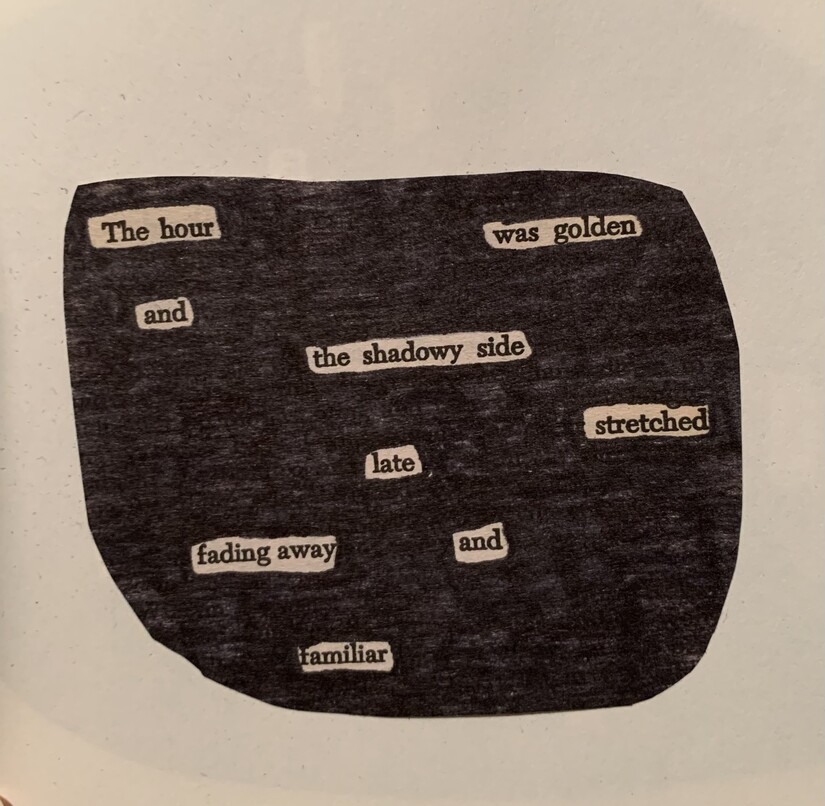
“The hour was golden and the shadowy side stretched late, fading away and familiar.”
Though I have made about three dozen blackout poems from various existing texts, the ones I have co-created with Mr. Bradbury are my favorite. I still feel a sense of wonder when something new emerges. I encourage you to try this with (a spare copy) of your own favorite texts or even just the daily newspaper. Let yourself be guided to co-create with the author and notice what new beauty emerges.
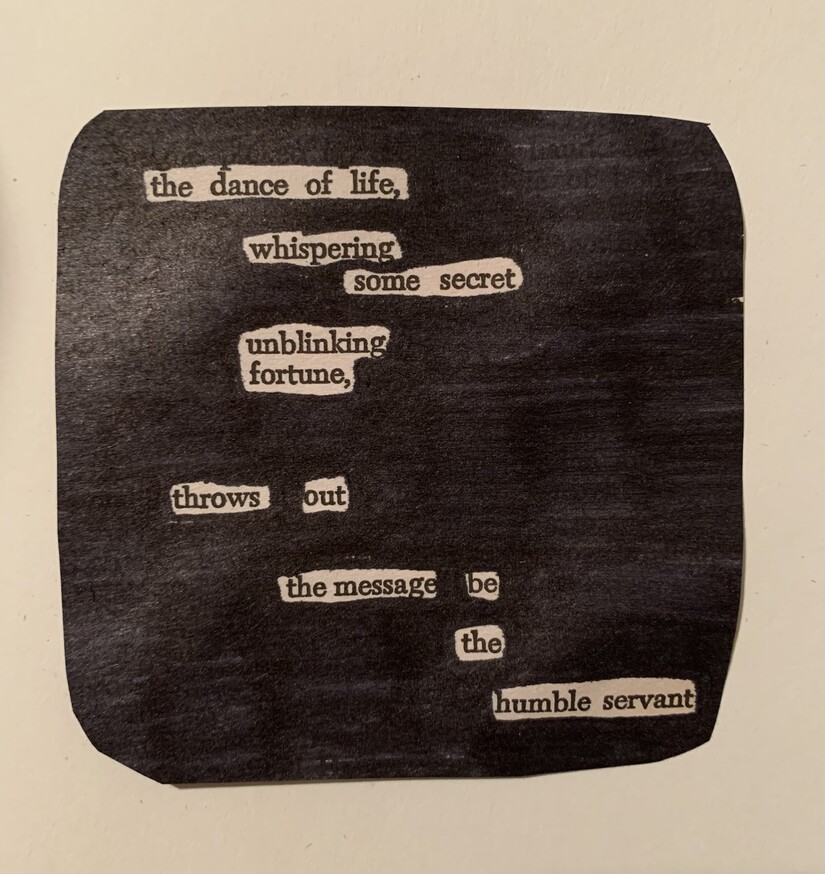
“The dance of life, whispering some secret unblinking fortune, throws out the message: be the humble servant.”
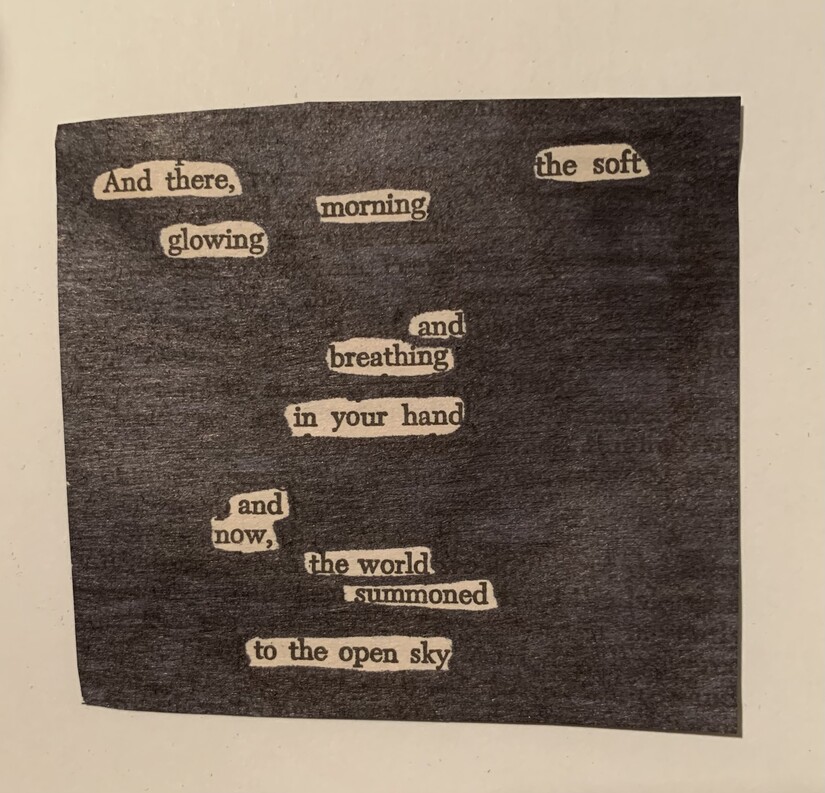
“And there, the soft morning glowing and breathing in your hand. And now, the world summoned to the open sky.”
Peace and happy co-creating!
-Megan
* Megan R. Bartlett is a ’95 BASH alum who now lives in the Philadelphia area. She is a licensed professional counselor and certified spiritual director who enjoys crafting, writing, and communing with Nature, especially her beloved cats.